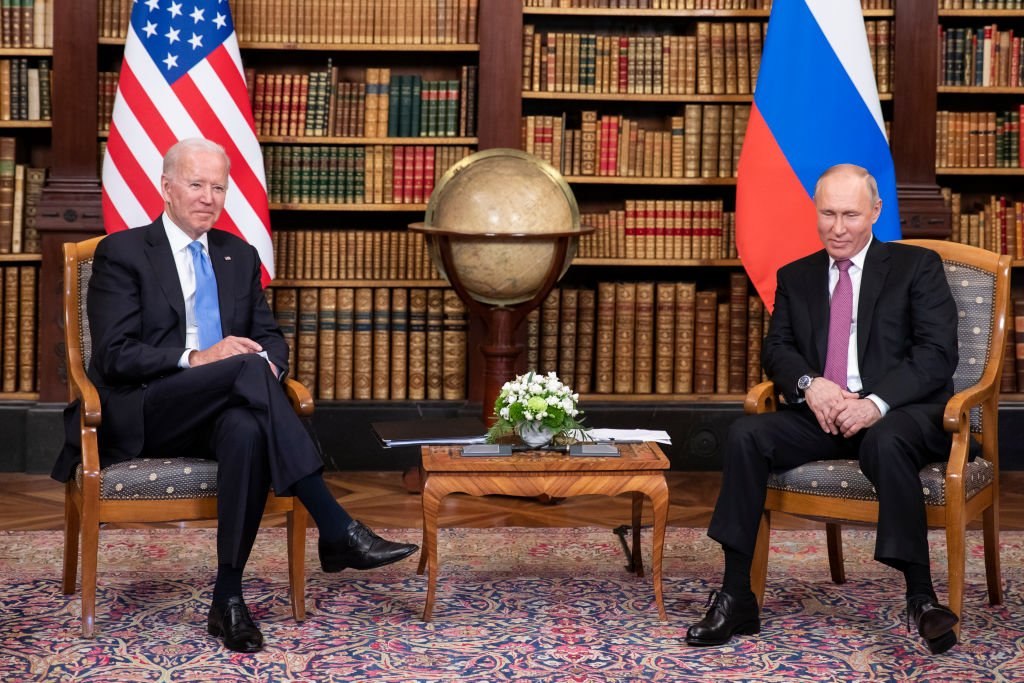Russia’s near-encirclement of Ukraine has moved Americans towards a more skeptical view of Russia, with most in the latest Economist/YouGov Poll seeing Russia as a threat not just to Ukraine but to the United States itself. That threat has brought most of the country, Republicans and Democrats alike, to the point of viewing Russian President Vladimir Putin personally as a serious threat to the U.S.
The share of Americans who perceive Russia as an “enemy” of the U.S. has jumped by eight points, from 31% to 39%, from one year ago, including increases of 10 points among Republicans and four points among Democrats.
Now, nearly three in four Democrats and three in four Republicans view Russia as either a somewhat serious threat to the U.S., or an immediate and serious threat. In August 2014, five months after Russia’s takeover of Crimea, just 19% of Republicans viewed Russia as an “immediate and serious” threat to the U.S.; now 35% do.
As for Putin personally, Americans see him as far more dangerous than they did in July 2016. Then, by 50% to 21%, Americans described him as a “threat” to the United States. Now, on a slightly different question, even more say he is a serious threat than said in 2016 that he was a threat of any kind. By 61% to 15%, Americans now call Putin a “serious threat.” Republicans and Democrats agree.
Negative American perceptions of Putin have as much to do with worries about his intentions as with his personal characteristics. By more than eight to one (69% to 8%), the Americans believe Russia wants to re-establish the borders of the old Soviet Union, which would include all of Ukraine (currently, Russia controls part of east Ukraine as well as the Crimea) as well as several other countries. When that question was asked in April 2014 on the Economist/YouGov poll, Americans said by 60% to 13% that Russia wanted to re-take its old borders.
Do Americans trust Putin? No. He is seen as a strong leader, but also seen unfavorably and as a dishonest person. Americans doubt President Joe Biden on many things, particularly foreign policy (just 31% are confident in his ability to handle an international crisis), and 63% see him as a weak leader, including 26% of Democrats. But even the president’s low favorability ratings and perceptions of his honesty are far higher than American opinions of Putin.
What should the U.S. do? By 49% to 28%, Americans believe their country has a responsibility to provide military assistance to its allies when it has been asked to. Americans also prioritize taking a strong stand against the Russian threat to Ukraine over maintaining good relations with Russia (by 51% to 22%). And while four in 20 Americans say they didn’t know enough to say whether the U.S. should help protect Ukraine militarily, those with an opinion favor U.S. military action by 36% to 24%.
More critically for decision-makers, there is little difference in the opinions of Republicans and Democrats on these questions, suggesting that at least in this circumstance, the perception of American national interest is the same in both parties.
—Linley Sanders and Taylor Orth contributed to this article
See the toplines and crosstabs from this Economist/YouGov Poll
Methodology: The Economist survey was conducted by YouGov using a nationally representative sample of 1,500 U.S. adult citizens interviewed online between January 22 and January 25, 2022. This sample was weighted according to gender, age, race, and education based on the 2018 American Community Survey, conducted by the U.S. Census Bureau, as well as 2016 and 2020 Presidential votes (or non-votes). Respondents were selected from YouGov’s opt-in panel to be representative of all U.S. citizens. The margin of error is approximately 3% for the overall sample.
Image: Getty











